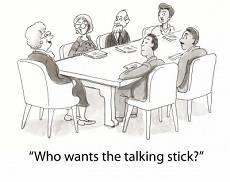May 1, 2014
Wearable technology will improve productivity and job satisfaction, claims report
 It’s remains a cause of a great deal of rancour in workplaces and public spaces around the world but new research from Goldsmiths, University of London claims that wearable technology can boost employee productivity by over 8 percent and job satisfaction by around 3.5 percent. The study was carried out as part of the University’s Human Cloud at Work (HCAW) programme and was designed to explore the effects of wearable technologies such as Google Glass in the workplace and on employee wellbeing, productivity and job satisfaction. HCAW is a two-year collaborative project between the Institute of Management Studies and cloud specialist Rackspace to investigate how cloud-enabled wearable devices will impact on individuals and businesses.
It’s remains a cause of a great deal of rancour in workplaces and public spaces around the world but new research from Goldsmiths, University of London claims that wearable technology can boost employee productivity by over 8 percent and job satisfaction by around 3.5 percent. The study was carried out as part of the University’s Human Cloud at Work (HCAW) programme and was designed to explore the effects of wearable technologies such as Google Glass in the workplace and on employee wellbeing, productivity and job satisfaction. HCAW is a two-year collaborative project between the Institute of Management Studies and cloud specialist Rackspace to investigate how cloud-enabled wearable devices will impact on individuals and businesses.

























October 22, 2013
Germans prove that long hours and productivity are often two completely different things
by John Sacks • Comment, Workplace
(more…)